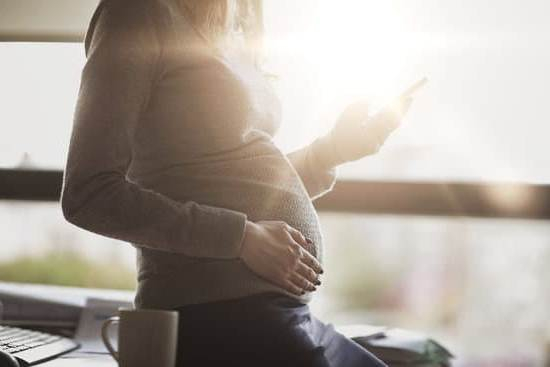Are you wondering, “Is bleeding a sign of pregnancy?” Many women may experience bleeding in the early stages of pregnancy and wonder about its significance. This article aims to provide insight into this common concern and help you understand the various factors at play. Understanding the early signs of pregnancy, including bleeding, is crucial for expectant mothers and those trying to conceive.
Pregnancy brings about a multitude of physical changes, including potential signs such as implantation bleeding. This section will delve into the concept of implantation bleeding and how it differs from menstrual bleeding. By exploring the differences, you can gain a better understanding of what to expect during early pregnancy and be better prepared for any unexpected vaginal bleeding.
Additionally, it is essential to consider that not all instances of bleeding during pregnancy are related to implantation or indicative of a healthy pregnancy. This section will also touch on other possible causes for bleeding during pregnancy, shedding light on when it may be a cause for concern. Understanding these various factors can help alleviate worries and ensure proper care is sought when necessary.
What Is Implantation Bleeding and How Is It Different From Menstrual Bleeding?
Implantation bleeding is one of the early signs that a woman may be pregnant. It occurs when the fertilized egg attaches itself to the lining of the uterus, causing some light spotting or bleeding. This typically occurs about 6-12 days after conception and is often mistaken for a light period. Here are some key differences between implantation bleeding and menstrual bleeding:
1. Color and Flow: Implantation bleeding is usually light pink or brown in color and has a much lighter flow than a regular period.
2. Duration: Implantation bleeding typically lasts for a shorter duration compared to menstrual bleeding, which can last from 3-7 days.
3. Timing: Implantation bleeding occurs around the time of expected menstruation or slightly earlier, while menstrual bleeding occurs at regular intervals.
It’s important to note that not all women will experience implantation bleeding, so its absence does not necessarily rule out pregnancy. Additionally, some women may mistake implantation bleeding for their period and not realize they are pregnant until later on.
While implantation bleeding is generally considered normal and harmless, it’s still crucial to consult with a healthcare professional if you experience any type of bleeding during pregnancy. They can provide guidance and reassurance, as well as rule out any potential complications.
Overall, understanding the difference between implantation and menstrual bleeding is important for women who are trying to conceive or suspect they may be pregnant.
Other Possible Causes of Bleeding During Pregnancy
During pregnancy, bleeding can be a worrisome symptom for many women. While implantation bleeding is a common early sign of pregnancy, there are other possible causes of bleeding that should not be ignored. It is important to understand the various reasons why bleeding may occur during pregnancy in order to differentiate between harmless symptoms and potentially serious complications.
Here are some other possible causes of bleeding during pregnancy:
1. Miscarriage: Unfortunately, miscarriage is a risk during the first trimester of pregnancy. Vaginal bleeding, accompanied by cramping and pain, can be a sign of miscarriage.
2. Ectopic Pregnancy: In this condition, the fertilized egg implants outside the uterus, usually in the fallopian tube. Vaginal bleeding, pelvic pain, and shoulder pain are common symptoms of an ectopic pregnancy.
3. Infections: In some cases, vaginal bleeding can be caused by infections such as yeast infections or sexually transmitted infections (STIs). These infections may require medical treatment to avoid complications for both the mother and the baby.
It is important for pregnant women to monitor any bleeding closely and consult with their healthcare provider if they experience any unusual symptoms or concerns. Seeking medical advice is crucial in order to receive appropriate care and ensure the health and safety of both the mother and the baby.
When Is Bleeding a Cause for Concern During Pregnancy?
Bleeding during pregnancy can be a cause for concern depending on the circumstances. It is important to differentiate between normal, harmless bleeding and bleeding that may indicate a more serious issue. One factor to consider is the timing of the bleeding. Implantation bleeding typically occurs 6-12 days after conception, while other types of bleeding may occur later in the pregnancy and could potentially be a sign of a complication.
Another consideration is the amount and frequency of the bleeding. Light spotting or pinkish discharge during early pregnancy may be considered normal, but heavy bleeding with clots or severe abdominal pain could indicate a miscarriage or ectopic pregnancy. Any bleeding that occurs after the first trimester should be evaluated by a healthcare provider as it could be a sign of more severe complications such as placental abruption or preterm labor.
Additionally, it is important to take into account any accompanying symptoms such as dizziness, fainting, fever, or intense cramping. These symptoms in conjunction with bleeding could point to a more urgent situation that requires immediate medical attention.
It is essential for women who are pregnant and experiencing any kind of bleeding to seek medical advice from their healthcare provider as soon as possible. While some instances of bleeding during pregnancy may not be cause for concern, it is best to have a professional assessment to ensure the health and safety of both the mother and baby.
| Causes | Concern Level |
|---|---|
| Implantation Bleeding | Low |
| Miscarriage/Ectopic Pregnancy | High |
| Placental Abruption/Preterm Labor | Urgent |
How to Differentiate Between Implantation Bleeding and Other Types of Bleeding
One of the early signs of pregnancy is implantation bleeding, which occurs when a fertilized egg attaches itself to the lining of the uterus. It typically happens around 6-12 days after conception and is often mistaken for a light period. Implantation bleeding is usually lighter in flow, shorter in duration, and ranges from pink to dark brown in color, as opposed to the bright red color of menstrual bleeding.
It is important to note that not all vaginal bleeding during pregnancy is implantation bleeding. Other types of bleeding such as miscarriage, ectopic pregnancy, or infections can also occur. Miscarriage bleeding tends to be heavier and accompanied by severe abdominal pain, while ectopic pregnancy may cause sharp pelvic pain and shoulder pain. Infections can cause abnormal discharge and foul odor along with vaginal bleeding.
Differentiating between implantation bleeding and other types of bleeding can sometimes be difficult, so it is crucial for pregnant individuals to pay attention to their body’s changes and seek medical advice if they experience any unusual symptoms or bleeding during pregnancy.
| Signs | Implantation Bleeding | Menstrual Bleeding |
|---|---|---|
| Flow | Light | Moderate to Heavy |
| Color | Pink to Dark Brown | Bright Red |
It is essential for pregnant individuals who experience any type of bleeding to consult with a healthcare professional. Only a doctor can perform the necessary evaluations to determine the cause of the bleeding and provide appropriate medical advice.
Waiting too long before seeking medical attention could pose potential risks for both the mother and the baby. Therefore, understanding how to differentiate between implantation bleeding and other types of bleeding is imperative for ensuring the health and safety of both the mother and her unborn child.
The Importance of Seeking Medical Advice if Experiencing Bleeding During Pregnancy
When experiencing bleeding during pregnancy, it is crucial to seek medical advice as soon as possible. While some bleeding can be normal during pregnancy, it is important to have a healthcare professional assess the situation to ensure the health and safety of both the mother and the baby.
Reasons for Seeking Medical Advice
There are several reasons why seeking medical advice when experiencing bleeding during pregnancy is crucial. Firstly, it can help determine the cause of the bleeding and whether it is a potential risk to the pregnancy. Additionally, receiving medical guidance can provide peace of mind and support for expectant mothers during what can be an anxious time.
Importance of Early Intervention
Seeking medical advice early on can also allow healthcare professionals to intervene if necessary. In some cases, early detection and treatment of issues related to bleeding during pregnancy can help prevent complications and promote a healthy pregnancy outcome.
Reassurance and Support
Finally, consulting with a healthcare provider can offer reassurance and emotional support to expectant mothers who may be concerned about experiencing bleeding during their pregnancy. It is important for women to feel supported and informed throughout their pregnancy journey, and seeking medical advice for any concerning symptoms, including bleeding, is an essential part of that support system.
Personal Stories
Can Be Alarming
, it’s important to note that not all bleeding during pregnancy indicates a serious issue. In fact, some women may experience bleeding and go on to have completely healthy pregnancies and deliver healthy babies.
Understanding the Experiences of Other Women
It can be reassuring for women who are experiencing bleeding during their pregnancies to hear the experiences of others who have gone through the same thing. Hearing personal stories from real women can offer comfort and insight into how different individuals have navigated through similar situations.
Navigating the Emotions of Bleeding During Pregnancy
Trigger a Range of Emotions
including fear, anxiety, and uncertainty. By hearing personal stories from other women who have experienced this symptom, it allows expectant mothers to understand that they are not alone in their journey. This can help alleviate some of the emotional distress associated with bleeding during pregnancy.
These personal stories also highlight the importance of seeking medical advice and support when dealing with any concerning symptoms during pregnancy. It is crucial for pregnant women to have open communication with their healthcare providers and to seek professional guidance to ensure the health and safety of both themselves and their babies.
Conclusion
Bleeding can be a confusing and worrying symptom for many women, especially when trying to conceive or during pregnancy. As this article has discussed, implantation bleeding is one potential early sign of pregnancy, but it is important to differentiate it from other causes of bleeding. It is crucial for women to understand that while bleeding can sometimes be a sign of pregnancy, it is not always the case.
It is essential for women to be aware of the various causes of bleeding during pregnancy, as well as the importance of seeking medical advice if experiencing any unusual symptoms. Understanding the difference between implantation bleeding and other types of bleeding, as well as being aware of when bleeding may be a cause for concern, can help alleviate some anxiety surrounding this symptom.
Ultimately, every woman’s experience with pregnancy and any associated symptoms, including bleeding, is unique. Reading personal stories from other women who have experienced bleeding during their pregnancies can provide comfort and reassurance. However, it is still important to consult with a healthcare professional if experiencing any concerning symptoms or uncertainty about one’s pregnancy status.
Frequently Asked Questions
What Does Early Pregnancy Bleeding Look Like?
Early pregnancy bleeding can vary in appearance for different women. It can range from light spotting to heavy bleeding, and may be pink, red, or even brown in color. It’s important to consult a healthcare provider if you experience any bleeding during early pregnancy.
How Do I Know if I’m Pregnant if I’m Bleeding?
If you’re experiencing bleeding and unsure if you’re pregnant, it’s best to take a pregnancy test. Even if you have light bleeding, it’s possible that you could still be pregnant. However, if the bleeding is heavy and accompanied by severe pain, it’s crucial to seek medical attention immediately.
How Early in Pregnancy Does Bleeding Start?
Bleeding in early pregnancy can start as soon as implantation occurs, which typically happens around 6-12 days after conception. This type of bleeding is often very light and occurs earlier than a woman’s expected period.
Other causes of early pregnancy bleeding include hormonal changes or conditions such as an ectopic pregnancy or miscarriage, so it’s important to speak with a medical professional for an accurate diagnosis and appropriate care.

Welcome to my fertility blog. This is a space where I will be sharing my experiences as I navigate through the world of fertility treatments, as well as provide information and resources about fertility and pregnancy.





